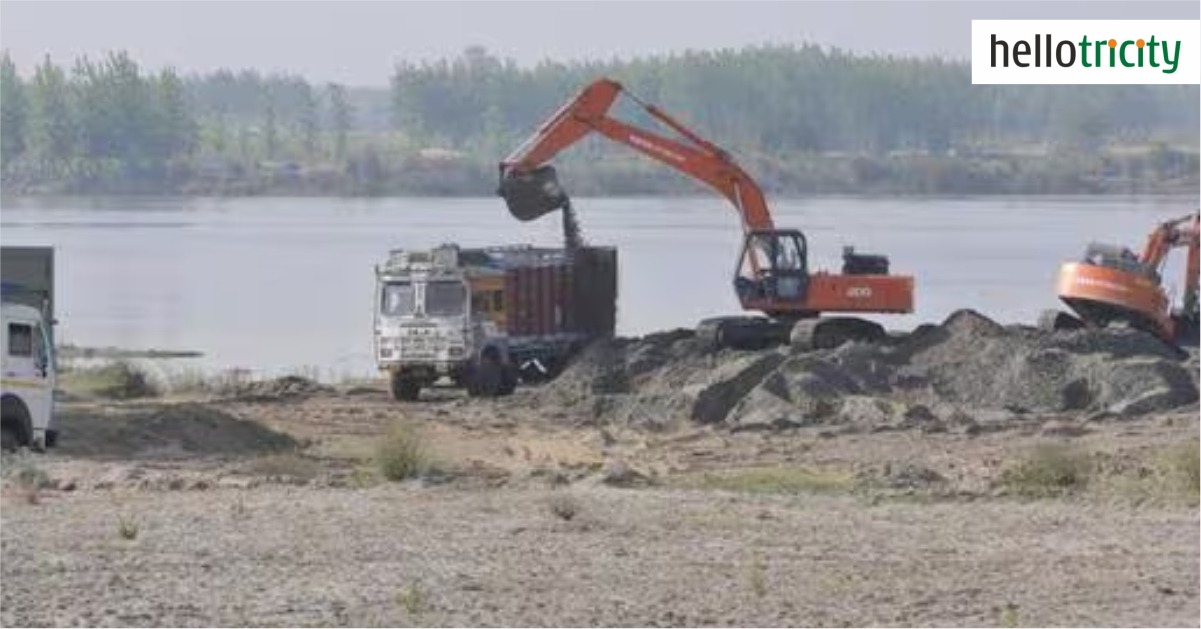A mining company in Panchkula, Haryana has been slapped with a huge fine of ₹9.5 crore for big-scale illegal gravel mining by the district mining department. This comes barely days after a Panchkula Municipal Corporation (MC) team was attacked and abused during a routine inspection by the same mining company personnel.
The district mining department cracked down on the illegal activity after uncovering evidence of the firm exceeding its allocated mining area by over 8 to 10 acres. Additionally, officials allege that the firm dug out significantly more gravel than permitted, exceeding the depth limit by 10 to 12 feet.
According to sources within the mining department, the unnamed firm has been operating in the area for at least 8 to 10 months. The department typically charges a mining tax of ₹50 per ton of gravel extracted. However, in cases of violation, a penalty of five times the tax amount is levied. This hefty fine reflects the severity of the offence and the potential environmental damage caused by excessive mining.
The incident highlights a concerning trend of illegal mining practices and disregard for regulations. The attack on the municipal team further raises questions about the conduct of the mining firm and the potential involvement of criminal elements.
Panchkula Mayor Kulbhushan Goyal condemned the attack and confirmed that the MC has filed a police complaint demanding immediate action. The complaint details the misbehaviour and assault faced by the MC team during their inspection visit.
The police have filed a case against the mining company for different sections of the Indian Penal Code (IPC) such as rioting, unlawful assembly, assault, criminal intimidation, obstructing a public servant from discharging his/her duties and wrongful restraint. These allegations show that the mining company and those representing it are guilty of breaching law and order.
This occurrence is a reminder that mining rules are not strong enough. Therefore, more strict punishment should be meted out to those who are involved in mining illegally and have better controls put in place to avoid environmental degradation and guarantee ethical mining practices. This should be done alongside protecting municipal agents who are involved in inspection activities. This case highlights the need for better coordination between the mining department, local authorities, and law enforcement to ensure responsible mining practices and protect public servants carrying out their duties.




